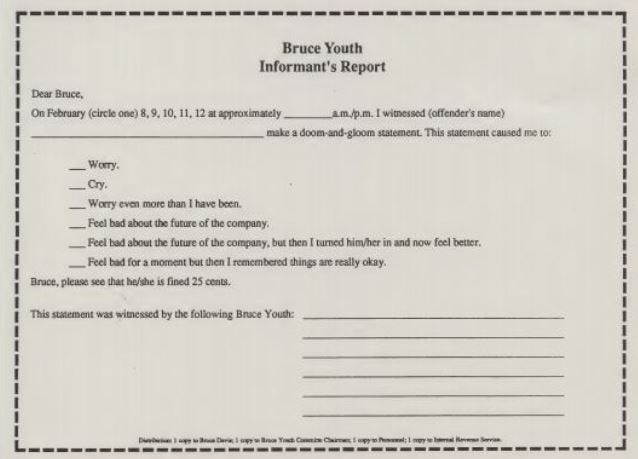Trending
Opinion: How will Project 2025 impact game developers?
The Heritage Foundation's manifesto for the possible next administration could do great harm to many, including large portions of the game development community.
Video game historian Jimmy Maher investigates the fall of Infocom, which Activision paid millions for in 1986 but effectively shuttered by the end of 1989.

"And we’re living here at Infocom,
But our recent games were all a bomb,
And it’s getting very hard to pay."
- Adaptation of Billy Joel's "Allentown" reportedly sung around Infocom in the late '80s.
In the summer of 1986, Activision paid millions to acquire storied interactive fiction game developer Infocom, best known for creating games like Zork and The Hitchhiker's Guide to the Galaxy.
Three years later, Activision had effectively shut down the company and driven out most of its talent. The story of how that happened is the focus of video game historian Jimmy Maher, who this week published a thoughtful look back at how Infocom fell from grace following Activision's buyout.
"Bruce wanted me to help him improve morale at Infocom and increase productivity. I told him that the lawsuit wasn’t helping," onetime Infocom employee Mike Dornbrook told Maher, recounting a dinner conversation with then-Activision chief Bruce Davis. "At that point I don’t think there were more than about 40 people at Infocom, and many of the top folks were being sued by Bruce and everyone knew it."
Davis had decided to take the former Infocom stockholders (many of whom still worked at the company) to court in '88 to try and get them to pay back some of the money Activision had paid them for Infocom, on the grounds that the company wasn't worth what they'd claimed it was.
"His response was that he didn’t care if the numbers were actually accurate and believed at that time. In retrospect, it was clear to him that Activision had overpaid and he was convinced that a jury would agree and reward him some of the money back," continued Dornbrook. "He expected the Infocom indemnifying shareholders to simply negotiate a settlement. When I told him that they would rather fight than give in to such blackmail, he indicated that I was being naive to think this."
At the same time, according to Maher, Infocom's game sales were dropping and developers at the studio were struggling to try and make up for it by cranking out more games.
Activision soon began to put more pressure on Infocom to perform, and the studio entered a tailspin which encompassed (among other things) an exodus of talent and acts of open defiance from Infocom vets, including a short-lived "Bruce Youth Informant's Report" memo (obtained by Davis and excerpted below) that ridiculed Davis and Activision's intrusive management.
"The program, known as 'Bruce Youth,' is modeled after the highly successful Hitler Youth program in Germany several years ago," reads an excerpt. "Although we won’t have executions or imprisonments for offenders, you will be able to turn in fellow employees who utter negative comments. Just fill out the form below."
Jimmy Maher's full rundown of (the beginning of) the end of Infocom is well worth reading over on his Digital Antiquarian blog.

You May Also Like